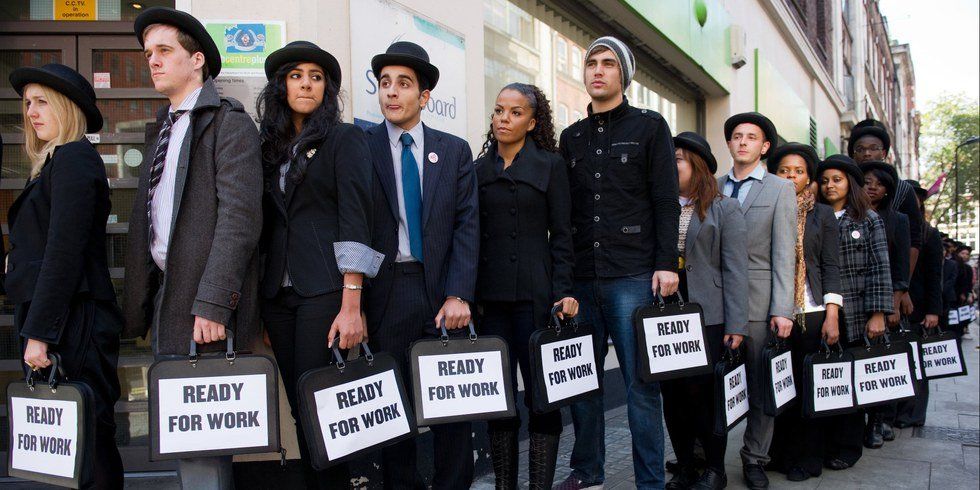The year is 2016, and believe it or not, racism still exists. It exists not only in the overtly and disturbingly racist killing of unarmed black men who are targets for police brutality, but also in less obvious ways. In light of recent events, it is time for us to open our eyes to the fact that people of color are being discriminated against, even in more covert ways. These examples of prejudice and racism can be seen in America's job market.
The racial implications of your name can affect your ability to get a job. According to The Huffington Post, a man named José Zamora had trouble getting responses to his job applications until he started applying with the name Joe Zamora instead. After applying with this name, he got a ton of responses. Simply dropping one letter of his name to make it sound more white increased his chances of being hired. This is happening in the work place an alarming amount. People who have names which are typically associated with one specific race (other than white) can have a harder time getting accepted into a position. According to the National Bureau of Economic Research, job applicants who had white sounding names needed to send out about 10 applications to get 1 call back, whereas applicants with African-American sounding names had to send out 15 applications to get one call back. The final outcome of the study that NBER cites, called "Are Emily and Greg More Employable than Lakisha and Jamal? A Field Experiment on Labor Market Discrimination", showed that having a white name warrants the same results as having an extra 8 years of experience.
Another study, published in The Social Science Journal, paired people of different races who had similar characteristics and body type, and sent them to apply as servers to fine dining establishments in New York City. The study found that minorities were less likely to get hired. They were only 54 percent as likely to be hired as their white counterparts in the study, despite having equal qualifications for hire. Not only were minorities less likely to be hired, but they were also paid less when they were hired by 12 percent.
Another study looked at the attitudes of employers, including their prejudices against people of color in the work field. A multitide of employers claimed that they don't look at the race of a person when they are reading applications to hire. Yet, when these same employers were asked to describe the differences between employees of different races in the work place, they often made prejudiced statements about employees based on their race.
Regardless of the intentions of the employers, it is clear that racial bias still exists in the work force in America. Many employers have prejudiced stereotypes about the quality of work that people of color contribute to their business. Minorities are not only hired less with in person interviews, but are also often discriminated against based on whether their name is typically associated with a race other than white. Minorities are not only hired less, but once they are hired, they tend to make lower wages, while having the same qualifications. It is time that we take a stand, discuss these overt racist hiring practices, and make the necessary changes to make the job market a place where equality can thrive.





















